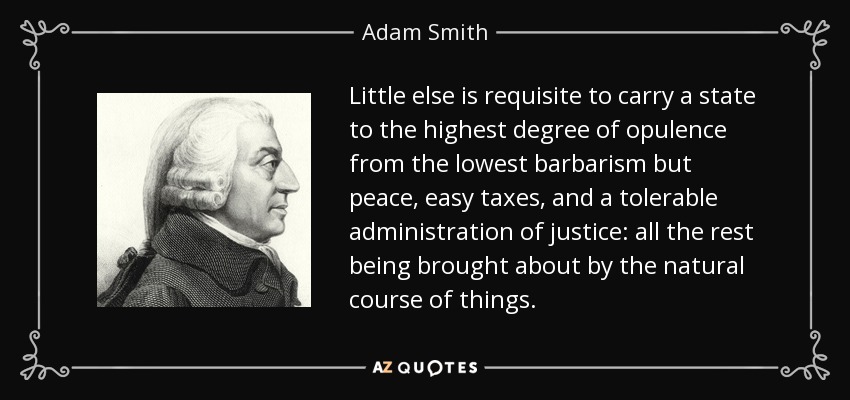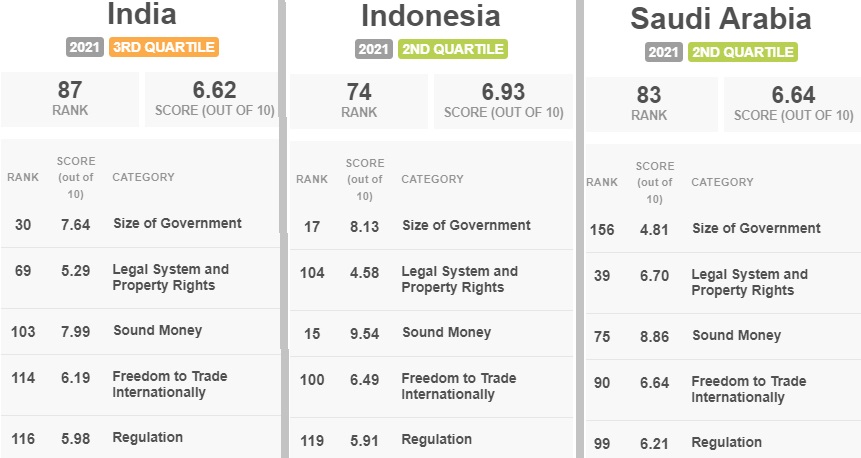I explained a few months ago how poor nations can converge with rich nations.
The recipe for prosperity is actually very simple, as Adam Smith wrote centuries ago.
Sadly, most governments don’t follow that recipe, largely because politicians have the wrong incentives. They lose power and control if a nation has free markets and limited government.
Given the importance of this issue, I was very interested to see that the U.K.-based Economist had an article about plans for faster growth in India, Indonesia, and Saudi Arabia.
The good news is that these nations recognize that it is vital to be part of the global economy. The bad news is that they foolishly think protectionism and industrial policy will produce good results.
…many developing countries’ ideas for growth are staggeringly ambitious. India and Indonesia hope to become high-income countries within 25 years. …Refreshingly, such plans are more outward-looking than many development strategies of old. …That is a welcome shift. …serving foreign markets plays a vital role in development. It keeps firms honest, by forcing them to compete in markets that their governments do not control. …
Nonetheless, today’s development strategies also hold dangers. In many countries governments are running the risk of warping the economy in the name of nurturing it. Saudi Arabia’s onslaught of industrial policy, mainly disbursed as handouts from the Public Investment Fund, exceeds the spending even of America’s Inflation Reduction Act. …
India is seeking to fence off its high-tech manufacturers behind tariffs and subsidies. Indonesia’s all-in bet on nickel leaves it perilously exposed… The rich world’s new-found zeal for protectionism may make it tempting for poorer countries to follow suit.
It is possible that India, Indonesia, and Saudi Arabia can compensate for bad trade policy and bad industrial policy by having very good policies in other areas?
Maybe, but don’t hold your breath. According to Economic Freedom of the World, all three nations have very mediocre scores for economic liberty. Both overall and in most of the five categories.
The bottom line is that these nations need growth. So it’s good that politicians say they want to make that happen.
But none of those countries will become another Singapore or (pre-China-takeover) Hong Kong unless there are radical reductions in the size and scope of government.



No comments:
Post a Comment